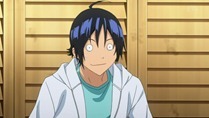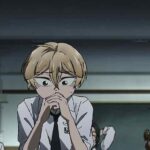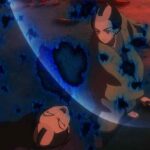![[SFW-sage]_Bakuman_S3_-_05_[720p][D2BC14C3].mkv_snapshot_06.11_[2012.11.05_20.41.30] [SFW-sage]_Bakuman_S3_-_05_[720p][D2BC14C3].mkv_snapshot_06.11_[2012.11.05_20.41.30]](https://lh5.ggpht.com/-n8xoG2GIJWE/UJe0oyQmFPI/AAAAAAACEYM/m4nPlQT4PSg/%25255BSFW-sage%25255D_Bakuman_S3_-_05_%25255B720p%25255D%25255BD2BC14C3%25255D.mkv_snapshot_06.11_%25255B2012.11.05_20.41.30%25255D_thumb.jpg?imgmax=800) |
![[SFW-sage]_Bakuman_S3_-_05_[720p][D2BC14C3].mkv_snapshot_13.52_[2012.11.05_20.49.24] [SFW-sage]_Bakuman_S3_-_05_[720p][D2BC14C3].mkv_snapshot_13.52_[2012.11.05_20.49.24]](https://lh3.ggpht.com/-ZSw8OlslXNc/UJe0r_aMHYI/AAAAAAACEYg/OpcgdkCPwz4/%25255BSFW-sage%25255D_Bakuman_S3_-_05_%25255B720p%25255D%25255BD2BC14C3%25255D.mkv_snapshot_13.52_%25255B2012.11.05_20.49.24%25255D_thumb.jpg?imgmax=800) |
![[SFW-sage]_Bakuman_S3_-_05_[720p][D2BC14C3].mkv_snapshot_16.55_[2012.11.05_20.52.41] [SFW-sage]_Bakuman_S3_-_05_[720p][D2BC14C3].mkv_snapshot_16.55_[2012.11.05_20.52.41]](https://lh6.ggpht.com/-z4cudRo2ZmI/UJe0vMrOK8I/AAAAAAACEYw/sFYe-Ak6vyo/%25255BSFW-sage%25255D_Bakuman_S3_-_05_%25255B720p%25255D%25255BD2BC14C3%25255D.mkv_snapshot_16.55_%25255B2012.11.05_20.52.41%25255D_thumb.jpg?imgmax=800) |
Thought it often ventures into other areas with highly entertaining results, Bakuman always returns to what it truly is – an extended love letter to manga.
![[SFW-sage]_Bakuman_S3_-_05_[720p][D2BC14C3].mkv_snapshot_00.31_[2012.11.05_20.36.32] [SFW-sage]_Bakuman_S3_-_05_[720p][D2BC14C3].mkv_snapshot_00.31_[2012.11.05_20.36.32]](https://lh6.ggpht.com/-wP8BWwQOGKY/UJe0yLxuqxI/AAAAAAACEY8/Z9bEffJhMg4/%25255BSFW-sage%25255D_Bakuman_S3_-_05_%25255B720p%25255D%25255BD2BC14C3%25255D.mkv_snapshot_00.31_%25255B2012.11.05_20.36.32%25255D_thumb.jpg?imgmax=800) One thing that Bakuman gets just right is hard to truly understand until you’ve been to Japan, and that’s the degree to which manga is a populist art form. It’s hard to imagine coming from America, but here you can be on a Shinkansen bound for Kyoto and watch a businessman in an expensive suit sit down, pop open a beer and pull the latest Shounen Jump out of his Prada briefcase. You can see Obaa-sans on park benches reading shoujo magazines. Manga is the peoples’ art form here, with roots that go back centuries (just visit the Kyoto Manga Museum if you don’t believe me) and that’s what Shun was really driving at when he told his sister that paintings sit in houses so that rich men can be alone in staring at them, while everyone can enjoy manga, and it’s clearly a sentiment that’s near and dear to the hearts of Ohba and Obata.
One thing that Bakuman gets just right is hard to truly understand until you’ve been to Japan, and that’s the degree to which manga is a populist art form. It’s hard to imagine coming from America, but here you can be on a Shinkansen bound for Kyoto and watch a businessman in an expensive suit sit down, pop open a beer and pull the latest Shounen Jump out of his Prada briefcase. You can see Obaa-sans on park benches reading shoujo magazines. Manga is the peoples’ art form here, with roots that go back centuries (just visit the Kyoto Manga Museum if you don’t believe me) and that’s what Shun was really driving at when he told his sister that paintings sit in houses so that rich men can be alone in staring at them, while everyone can enjoy manga, and it’s clearly a sentiment that’s near and dear to the hearts of Ohba and Obata.
![[SFW-sage]_Bakuman_S3_-_05_[720p][D2BC14C3].mkv_snapshot_03.31_[2012.11.05_20.38.44] [SFW-sage]_Bakuman_S3_-_05_[720p][D2BC14C3].mkv_snapshot_03.31_[2012.11.05_20.38.44]](https://lh5.ggpht.com/-aTpRhSlHdG0/UJe01CvJfuI/AAAAAAACEZQ/798rGLibccc/%25255BSFW-sage%25255D_Bakuman_S3_-_05_%25255B720p%25255D%25255BD2BC14C3%25255D.mkv_snapshot_03.31_%25255B2012.11.05_20.38.44%25255D_thumb.jpg?imgmax=800) Fundamentally the people at the heart of this series are really good souls, though they often run into trouble because that doesn’t necessarily apply to everyone else. Mashiro is definitely getting screwed by the whole Rabuta & Peace experiment, but he can’t bring himself to let his feelings be known (apart from the least-convincing smile ever) because he can’t bring himself to be the one to stomp on Shun’s break, and Takagi’s chance to improve his career. Eiji is horrified by the notion that PCP will never be an anime even though it’s in direct competition with him, because he respects the work and the guys who draw it (“TV stations have no backbone” indeed). Takagi is always looking for ways to help Mashiro achieve his dream with Azuki, as impractical as the pair of them are. And Hattori is focused like a laser on making the young people who writer for him better at what they do. If the world were filled with people like that it would be a much easier place to deal with.
Fundamentally the people at the heart of this series are really good souls, though they often run into trouble because that doesn’t necessarily apply to everyone else. Mashiro is definitely getting screwed by the whole Rabuta & Peace experiment, but he can’t bring himself to let his feelings be known (apart from the least-convincing smile ever) because he can’t bring himself to be the one to stomp on Shun’s break, and Takagi’s chance to improve his career. Eiji is horrified by the notion that PCP will never be an anime even though it’s in direct competition with him, because he respects the work and the guys who draw it (“TV stations have no backbone” indeed). Takagi is always looking for ways to help Mashiro achieve his dream with Azuki, as impractical as the pair of them are. And Hattori is focused like a laser on making the young people who writer for him better at what they do. If the world were filled with people like that it would be a much easier place to deal with.
![[SFW-sage]_Bakuman_S3_-_05_[720p][D2BC14C3].mkv_snapshot_05.24_[2012.11.05_20.40.36] [SFW-sage]_Bakuman_S3_-_05_[720p][D2BC14C3].mkv_snapshot_05.24_[2012.11.05_20.40.36]](https://lh4.ggpht.com/-geYW4o-VJz4/UJe04ti606I/AAAAAAACEZg/F87y1Dczjdo/%25255BSFW-sage%25255D_Bakuman_S3_-_05_%25255B720p%25255D%25255BD2BC14C3%25255D.mkv_snapshot_05.24_%25255B2012.11.05_20.40.36%25255D_thumb.jpg?imgmax=800) That notion becomes even more crucial when the depth of Shun’s family problems become clear. It’s not just a matter of a disapproving mother – it’s a matter of whether he’s going to be able to write manga at all, as she’s forcing Shun either to study in Paris or go work for his father. When the truth of that becomes clear that cements Mashiro’s resolve to do whatever he can even at great cost to himself, because he sees Shun chasing the same dream he was. Yes, the conflict is played too broadly and the Mom painted as too much of a heartless ogre, but it’s effectively the same fight many an idealistic youth has had to engage in, and it’s fundamental to what this story is about.
That notion becomes even more crucial when the depth of Shun’s family problems become clear. It’s not just a matter of a disapproving mother – it’s a matter of whether he’s going to be able to write manga at all, as she’s forcing Shun either to study in Paris or go work for his father. When the truth of that becomes clear that cements Mashiro’s resolve to do whatever he can even at great cost to himself, because he sees Shun chasing the same dream he was. Yes, the conflict is played too broadly and the Mom painted as too much of a heartless ogre, but it’s effectively the same fight many an idealistic youth has had to engage in, and it’s fundamental to what this story is about.
![[SFW-sage]_Bakuman_S3_-_05_[720p][D2BC14C3].mkv_snapshot_05.48_[2012.11.05_20.41.00] [SFW-sage]_Bakuman_S3_-_05_[720p][D2BC14C3].mkv_snapshot_05.48_[2012.11.05_20.41.00]](https://lh3.ggpht.com/-iNzQwGkCZjo/UJe07mxllZI/AAAAAAACEZw/ReshzFTUxkg/%25255BSFW-sage%25255D_Bakuman_S3_-_05_%25255B720p%25255D%25255BD2BC14C3%25255D.mkv_snapshot_05.48_%25255B2012.11.05_20.41.00%25255D_thumb.jpg?imgmax=800) The flipside, of course, is that Mashiro’s own hopes and dreams are on hold, with PCP seemingly out of the running for an anime and Takagi engaged with Rabuta & Peace. He’s bound and determined to get faster – possibly seizing on a new method he sees Shun using as a way to do so – so that he can draw a second manga on his own. This is a little worrisome considering he almost literally worked himself to death once already, but I confess I was incredibly curious to see what he’d come up with as a writer – and actually a little disappointed when Takagi insisted that he be allowed to work on a one-shot for the “Super Leaders Fest” one-shot tourney in Jack, even though Rabuta & Peace appears headed for serialization. I think there’s another element here, and that’s that Takagi doesn’t want to see Mashiro complete a manga on his own – because if it succeeds, what does that mean for the future of Ashirogi Muto? Takagi can’t draw, but if Mashiro can write…
The flipside, of course, is that Mashiro’s own hopes and dreams are on hold, with PCP seemingly out of the running for an anime and Takagi engaged with Rabuta & Peace. He’s bound and determined to get faster – possibly seizing on a new method he sees Shun using as a way to do so – so that he can draw a second manga on his own. This is a little worrisome considering he almost literally worked himself to death once already, but I confess I was incredibly curious to see what he’d come up with as a writer – and actually a little disappointed when Takagi insisted that he be allowed to work on a one-shot for the “Super Leaders Fest” one-shot tourney in Jack, even though Rabuta & Peace appears headed for serialization. I think there’s another element here, and that’s that Takagi doesn’t want to see Mashiro complete a manga on his own – because if it succeeds, what does that mean for the future of Ashirogi Muto? Takagi can’t draw, but if Mashiro can write…
![[SFW-sage]_Bakuman_S3_-_05_[720p][D2BC14C3].mkv_snapshot_06.25_[2012.11.05_20.41.45] [SFW-sage]_Bakuman_S3_-_05_[720p][D2BC14C3].mkv_snapshot_06.25_[2012.11.05_20.41.45]](https://lh4.ggpht.com/-aeIEJfChtdI/UJe0-eF3dII/AAAAAAACEaA/6rZPlgHwGVA/%25255BSFW-sage%25255D_Bakuman_S3_-_05_%25255B720p%25255D%25255BD2BC14C3%25255D.mkv_snapshot_06.25_%25255B2012.11.05_20.41.45%25255D_thumb.jpg?imgmax=800) I certainly don’t begrudge Takagi a little jealousy (“PCP isn’t getting an anime, so you’re going to try and get one without me?”) given how faithful he’s been to the partnership over the years, but it seems a little presumptuous given that Mashiro has just OK’d Takagi writing a second manga without him. The fact is that Mashiro has actually shown very good story sense and with some work, could probably succeed as a solo mangaka, but he’s not Eiji and it wouldn’t come easily. With both Hiramaru and Aoki’s mangas being cancelled, change is definitely in the air, and something is going to have to give – I just don’t see Takagi writing three serializations at once. Either Rabuta & Peace doesn’t make it – or Shun graduates to writing it himself – PCP gets an anime after all (there have been hints), or Mashiro actually does try and do a manga on his own. Selfishly I kind of hope it’s the latter, because I’d really like to see what he would come up with.
I certainly don’t begrudge Takagi a little jealousy (“PCP isn’t getting an anime, so you’re going to try and get one without me?”) given how faithful he’s been to the partnership over the years, but it seems a little presumptuous given that Mashiro has just OK’d Takagi writing a second manga without him. The fact is that Mashiro has actually shown very good story sense and with some work, could probably succeed as a solo mangaka, but he’s not Eiji and it wouldn’t come easily. With both Hiramaru and Aoki’s mangas being cancelled, change is definitely in the air, and something is going to have to give – I just don’t see Takagi writing three serializations at once. Either Rabuta & Peace doesn’t make it – or Shun graduates to writing it himself – PCP gets an anime after all (there have been hints), or Mashiro actually does try and do a manga on his own. Selfishly I kind of hope it’s the latter, because I’d really like to see what he would come up with.
![[SFW-sage]_Bakuman_S3_-_05_[720p][D2BC14C3].mkv_snapshot_07.08_[2012.11.05_20.42.28] [SFW-sage]_Bakuman_S3_-_05_[720p][D2BC14C3].mkv_snapshot_07.08_[2012.11.05_20.42.28]](https://lh4.ggpht.com/-MQwdGOmdLVU/UJe1Ca1jqGI/AAAAAAACEaQ/Eh3JHOO2XJg/%25255BSFW-sage%25255D_Bakuman_S3_-_05_%25255B720p%25255D%25255BD2BC14C3%25255D.mkv_snapshot_07.08_%25255B2012.11.05_20.42.28%25255D_thumb.jpg?imgmax=800) |
![[SFW-sage]_Bakuman_S3_-_05_[720p][D2BC14C3].mkv_snapshot_07.52_[2012.11.05_20.43.12] [SFW-sage]_Bakuman_S3_-_05_[720p][D2BC14C3].mkv_snapshot_07.52_[2012.11.05_20.43.12]](https://lh5.ggpht.com/-mRMYA1p4ye4/UJe1F9qGgzI/AAAAAAACEag/n0Yvmdaq-_s/%25255BSFW-sage%25255D_Bakuman_S3_-_05_%25255B720p%25255D%25255BD2BC14C3%25255D.mkv_snapshot_07.52_%25255B2012.11.05_20.43.12%25255D_thumb.jpg?imgmax=800) |
![[SFW-sage]_Bakuman_S3_-_05_[720p][D2BC14C3].mkv_snapshot_07.57_[2012.11.05_20.43.17] [SFW-sage]_Bakuman_S3_-_05_[720p][D2BC14C3].mkv_snapshot_07.57_[2012.11.05_20.43.17]](https://lh4.ggpht.com/-cD0wn-cN2HI/UJe1JCn0XmI/AAAAAAACEas/TUh2EIh_TyM/%25255BSFW-sage%25255D_Bakuman_S3_-_05_%25255B720p%25255D%25255BD2BC14C3%25255D.mkv_snapshot_07.57_%25255B2012.11.05_20.43.17%25255D_thumb.jpg?imgmax=800) |
![[SFW-sage]_Bakuman_S3_-_05_[720p][D2BC14C3].mkv_snapshot_10.44_[2012.11.05_20.46.04] [SFW-sage]_Bakuman_S3_-_05_[720p][D2BC14C3].mkv_snapshot_10.44_[2012.11.05_20.46.04]](https://lh3.ggpht.com/-lhe5lrPOl8s/UJe1LFK3AFI/AAAAAAACEbA/l79Lroo_7Kc/%25255BSFW-sage%25255D_Bakuman_S3_-_05_%25255B720p%25255D%25255BD2BC14C3%25255D.mkv_snapshot_10.44_%25255B2012.11.05_20.46.04%25255D_thumb.jpg?imgmax=800) |
![[SFW-sage]_Bakuman_S3_-_05_[720p][D2BC14C3].mkv_snapshot_11.21_[2012.11.05_20.46.52] [SFW-sage]_Bakuman_S3_-_05_[720p][D2BC14C3].mkv_snapshot_11.21_[2012.11.05_20.46.52]](https://lh5.ggpht.com/-6vGEsVuMHTs/UJe1OfegwkI/AAAAAAACEbQ/kYZo8rOwVlQ/%25255BSFW-sage%25255D_Bakuman_S3_-_05_%25255B720p%25255D%25255BD2BC14C3%25255D.mkv_snapshot_11.21_%25255B2012.11.05_20.46.52%25255D_thumb.jpg?imgmax=800) |
![[SFW-sage]_Bakuman_S3_-_05_[720p][D2BC14C3].mkv_snapshot_11.32_[2012.11.05_20.47.04] [SFW-sage]_Bakuman_S3_-_05_[720p][D2BC14C3].mkv_snapshot_11.32_[2012.11.05_20.47.04]](https://lh5.ggpht.com/-W33LTgYWklE/UJe1R9EWWEI/AAAAAAACEbg/Y5XQEkvq2H4/%25255BSFW-sage%25255D_Bakuman_S3_-_05_%25255B720p%25255D%25255BD2BC14C3%25255D.mkv_snapshot_11.32_%25255B2012.11.05_20.47.04%25255D_thumb.jpg?imgmax=800) |
![[SFW-sage]_Bakuman_S3_-_05_[720p][D2BC14C3].mkv_snapshot_12.08_[2012.11.05_20.47.40] [SFW-sage]_Bakuman_S3_-_05_[720p][D2BC14C3].mkv_snapshot_12.08_[2012.11.05_20.47.40]](https://lh5.ggpht.com/-AJJJmDlQPQY/UJe1Uf_UD4I/AAAAAAACEbs/LrmuLa0etms/%25255BSFW-sage%25255D_Bakuman_S3_-_05_%25255B720p%25255D%25255BD2BC14C3%25255D.mkv_snapshot_12.08_%25255B2012.11.05_20.47.40%25255D_thumb.jpg?imgmax=800) |
![[SFW-sage]_Bakuman_S3_-_05_[720p][D2BC14C3].mkv_snapshot_12.43_[2012.11.05_20.48.15] [SFW-sage]_Bakuman_S3_-_05_[720p][D2BC14C3].mkv_snapshot_12.43_[2012.11.05_20.48.15]](https://lh5.ggpht.com/-ayrQG5dJJ34/UJe1WGYJUWI/AAAAAAACEcA/oUXOODJVfD0/%25255BSFW-sage%25255D_Bakuman_S3_-_05_%25255B720p%25255D%25255BD2BC14C3%25255D.mkv_snapshot_12.43_%25255B2012.11.05_20.48.15%25255D_thumb.jpg?imgmax=800) |
![[SFW-sage]_Bakuman_S3_-_05_[720p][D2BC14C3].mkv_snapshot_13.23_[2012.11.05_20.48.55] [SFW-sage]_Bakuman_S3_-_05_[720p][D2BC14C3].mkv_snapshot_13.23_[2012.11.05_20.48.55]](https://lh4.ggpht.com/-qM1blwhhVnY/UJe1YqKyw7I/AAAAAAACEcQ/dEyezVKQy-w/%25255BSFW-sage%25255D_Bakuman_S3_-_05_%25255B720p%25255D%25255BD2BC14C3%25255D.mkv_snapshot_13.23_%25255B2012.11.05_20.48.55%25255D_thumb.jpg?imgmax=800) |
![[SFW-sage]_Bakuman_S3_-_05_[720p][D2BC14C3].mkv_snapshot_13.31_[2012.11.05_20.49.03] [SFW-sage]_Bakuman_S3_-_05_[720p][D2BC14C3].mkv_snapshot_13.31_[2012.11.05_20.49.03]](https://lh6.ggpht.com/-hUHI3FrccEY/UJe1azNzw4I/AAAAAAACEcc/6lCEsNl_SrU/%25255BSFW-sage%25255D_Bakuman_S3_-_05_%25255B720p%25255D%25255BD2BC14C3%25255D.mkv_snapshot_13.31_%25255B2012.11.05_20.49.03%25255D_thumb.jpg?imgmax=800) |
![[SFW-sage]_Bakuman_S3_-_05_[720p][D2BC14C3].mkv_snapshot_13.48_[2012.11.05_20.49.20] [SFW-sage]_Bakuman_S3_-_05_[720p][D2BC14C3].mkv_snapshot_13.48_[2012.11.05_20.49.20]](https://lh3.ggpht.com/-1CuV36YUCog/UJe1dvDRSqI/AAAAAAACEcw/5Xp2L6JVvMw/%25255BSFW-sage%25255D_Bakuman_S3_-_05_%25255B720p%25255D%25255BD2BC14C3%25255D.mkv_snapshot_13.48_%25255B2012.11.05_20.49.20%25255D_thumb.jpg?imgmax=800) |
![[SFW-sage]_Bakuman_S3_-_05_[720p][D2BC14C3].mkv_snapshot_13.58_[2012.11.05_20.49.29] [SFW-sage]_Bakuman_S3_-_05_[720p][D2BC14C3].mkv_snapshot_13.58_[2012.11.05_20.49.29]](https://lh3.ggpht.com/-oUg3bYarLrU/UJe1hRiGTzI/AAAAAAACEdA/pgucrQloDGk/%25255BSFW-sage%25255D_Bakuman_S3_-_05_%25255B720p%25255D%25255BD2BC14C3%25255D.mkv_snapshot_13.58_%25255B2012.11.05_20.49.29%25255D_thumb.jpg?imgmax=800) |
![[SFW-sage]_Bakuman_S3_-_05_[720p][D2BC14C3].mkv_snapshot_15.03_[2012.11.05_20.50.35] [SFW-sage]_Bakuman_S3_-_05_[720p][D2BC14C3].mkv_snapshot_15.03_[2012.11.05_20.50.35]](https://lh5.ggpht.com/-cUcZcKT1iNo/UJe1kZW0LTI/AAAAAAACEdM/XtAJDcZ4fDg/%25255BSFW-sage%25255D_Bakuman_S3_-_05_%25255B720p%25255D%25255BD2BC14C3%25255D.mkv_snapshot_15.03_%25255B2012.11.05_20.50.35%25255D_thumb.jpg?imgmax=800) |
![[SFW-sage]_Bakuman_S3_-_05_[720p][D2BC14C3].mkv_snapshot_15.51_[2012.11.05_20.51.37] [SFW-sage]_Bakuman_S3_-_05_[720p][D2BC14C3].mkv_snapshot_15.51_[2012.11.05_20.51.37]](https://lh3.ggpht.com/-EDNt1D2pW6g/UJe1m5wwFUI/AAAAAAACEdg/FarYyaqx76s/%25255BSFW-sage%25255D_Bakuman_S3_-_05_%25255B720p%25255D%25255BD2BC14C3%25255D.mkv_snapshot_15.51_%25255B2012.11.05_20.51.37%25255D_thumb.jpg?imgmax=800) |
![[SFW-sage]_Bakuman_S3_-_05_[720p][D2BC14C3].mkv_snapshot_15.57_[2012.11.05_20.51.43] [SFW-sage]_Bakuman_S3_-_05_[720p][D2BC14C3].mkv_snapshot_15.57_[2012.11.05_20.51.43]](https://lh4.ggpht.com/-77oBPT4P7OM/UJe1p-XpCyI/AAAAAAACEds/BmXdlCu1xSk/%25255BSFW-sage%25255D_Bakuman_S3_-_05_%25255B720p%25255D%25255BD2BC14C3%25255D.mkv_snapshot_15.57_%25255B2012.11.05_20.51.43%25255D_thumb.jpg?imgmax=800) |
![[SFW-sage]_Bakuman_S3_-_05_[720p][D2BC14C3].mkv_snapshot_16.41_[2012.11.05_20.52.28] [SFW-sage]_Bakuman_S3_-_05_[720p][D2BC14C3].mkv_snapshot_16.41_[2012.11.05_20.52.28]](https://lh5.ggpht.com/-XbkI_fxHOCM/UJe1tbUo8wI/AAAAAAACEeA/XMDSUxTpxjY/%25255BSFW-sage%25255D_Bakuman_S3_-_05_%25255B720p%25255D%25255BD2BC14C3%25255D.mkv_snapshot_16.41_%25255B2012.11.05_20.52.28%25255D_thumb.jpg?imgmax=800) |
![[SFW-sage]_Bakuman_S3_-_05_[720p][D2BC14C3].mkv_snapshot_17.27_[2012.11.05_20.53.13] [SFW-sage]_Bakuman_S3_-_05_[720p][D2BC14C3].mkv_snapshot_17.27_[2012.11.05_20.53.13]](https://lh6.ggpht.com/-sY3W9fpaQuo/UJe1wTURd1I/AAAAAAACEeQ/lmEaGmT8cMc/%25255BSFW-sage%25255D_Bakuman_S3_-_05_%25255B720p%25255D%25255BD2BC14C3%25255D.mkv_snapshot_17.27_%25255B2012.11.05_20.53.13%25255D_thumb.jpg?imgmax=800) |
![[SFW-sage]_Bakuman_S3_-_05_[720p][D2BC14C3].mkv_snapshot_20.31_[2012.11.05_20.56.17] [SFW-sage]_Bakuman_S3_-_05_[720p][D2BC14C3].mkv_snapshot_20.31_[2012.11.05_20.56.17]](https://lh5.ggpht.com/-Zmnlwx6mJ9c/UJe1zoyjWeI/AAAAAAACEeg/zZz7sXt8zIA/%25255BSFW-sage%25255D_Bakuman_S3_-_05_%25255B720p%25255D%25255BD2BC14C3%25255D.mkv_snapshot_20.31_%25255B2012.11.05_20.56.17%25255D_thumb.jpg?imgmax=800) |
![[SFW-sage]_Bakuman_S3_-_05_[720p][D2BC14C3].mkv_snapshot_20.44_[2012.11.05_20.56.30] [SFW-sage]_Bakuman_S3_-_05_[720p][D2BC14C3].mkv_snapshot_20.44_[2012.11.05_20.56.30]](https://lh6.ggpht.com/-AHEkl8q9Ddc/UJe12NbesNI/AAAAAAACEew/5QTPWzT-cJI/%25255BSFW-sage%25255D_Bakuman_S3_-_05_%25255B720p%25255D%25255BD2BC14C3%25255D.mkv_snapshot_20.44_%25255B2012.11.05_20.56.30%25255D_thumb.jpg?imgmax=800) |
![[SFW-sage]_Bakuman_S3_-_05_[720p][D2BC14C3].mkv_snapshot_21.55_[2012.11.05_20.58.05] [SFW-sage]_Bakuman_S3_-_05_[720p][D2BC14C3].mkv_snapshot_21.55_[2012.11.05_20.58.05]](https://lh5.ggpht.com/-5MUBDv031xo/UJe14oN3HOI/AAAAAAACEfA/s_6nE5-tPYE/%25255BSFW-sage%25255D_Bakuman_S3_-_05_%25255B720p%25255D%25255BD2BC14C3%25255D.mkv_snapshot_21.55_%25255B2012.11.05_20.58.05%25255D_thumb.jpg?imgmax=800) |
![[SFW-sage]_Bakuman_S3_-_05_[720p][D2BC14C3].mkv_snapshot_22.25_[2012.11.05_20.58.35] [SFW-sage]_Bakuman_S3_-_05_[720p][D2BC14C3].mkv_snapshot_22.25_[2012.11.05_20.58.35]](https://lh5.ggpht.com/-eNvxCAs_jSY/UJe17Tl8bdI/AAAAAAACEfM/0WdLido6ZFU/%25255BSFW-sage%25255D_Bakuman_S3_-_05_%25255B720p%25255D%25255BD2BC14C3%25255D.mkv_snapshot_22.25_%25255B2012.11.05_20.58.35%25255D_thumb.jpg?imgmax=800) |





Snuckerpooks
November 5, 2012 at 1:36 pmIt is so funny to get on a train or go into any convenience store and just see people stand there reading the comics. Everyone does it, they go in, tool around the comics for a bit, head out. It is a VERY different culture but it has molded to the culture by having as many types of manga as there are as many types of other books. It is crazy.
Anonymous
November 6, 2012 at 12:42 pmI think manga in Japan is pretty much like rock music in other culture. It started as a thing only for kids, but eventually becomes a very main-stream thing which everyone enjoys so much.
darkkodiak
November 5, 2012 at 7:39 pmI really like the direction Bakuman has taken. The challenge is no longer "oh no, we have to get serialized or else". It has to do with the biggest challenge of all, how they can improve themselves as writer and artist. I didn't get that vibe of Takagi having that jealous hint to his look. Instead I got the feeling that he doesn't want Mashiro to go at it alone because even though Takagi has the talent to go at it alone, he has the personality of a team player to the end. However, I do have the same curiosity as to what kind of manga Mashiro can pop out of his head though. Anyways, here is to looking forward to whatever crazy antics we will see when all the manga artist come into one room XD.
Anonymous
November 6, 2012 at 2:34 amYou'll be glad then since they'll be developing themselves for a pretty long time..